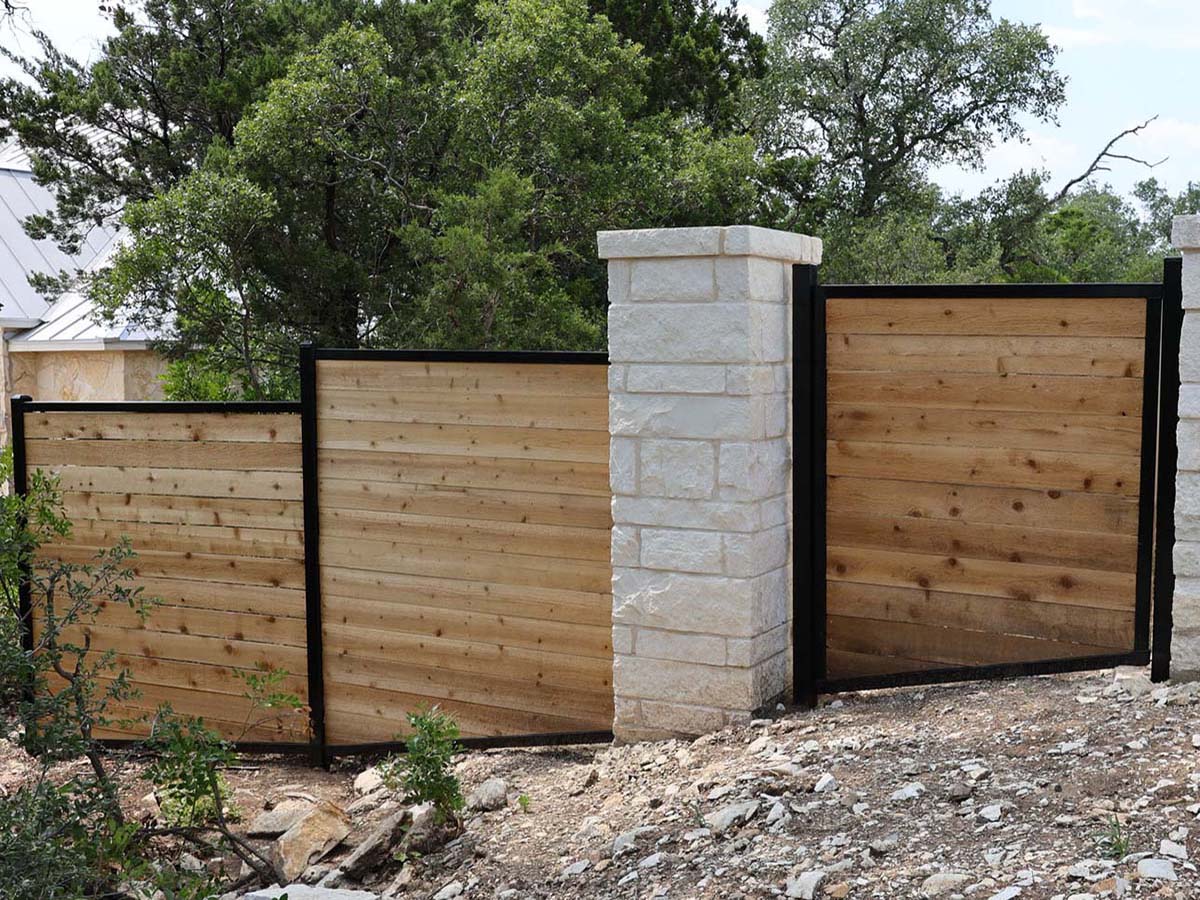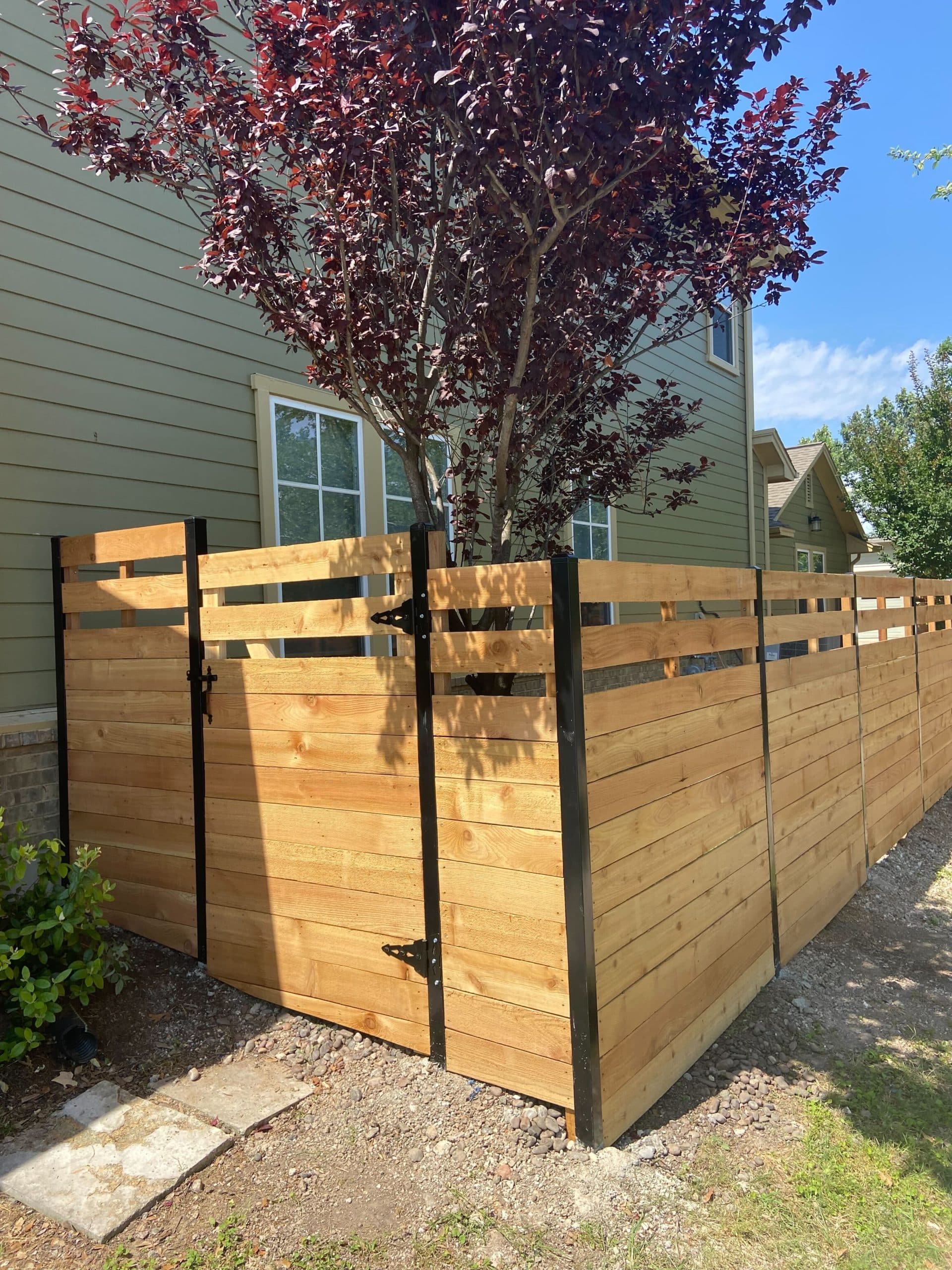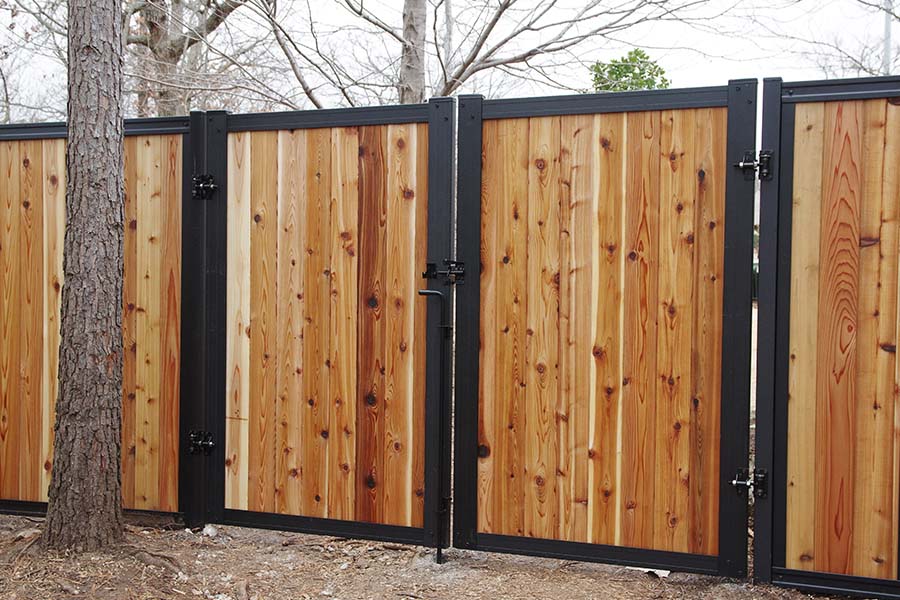All Categories
Featured
When selecting a fence for your residential or commercial property, it's vital to take into consideration aspects like expense, toughness, maintenance, and visual appeal. Three of the most popular products for residential and business fencings are plastic, aluminum, and timber.
Timber Fence. Pros:
![]()
Natural Aesthetic: Wood fencings are recognized for their traditional, all-natural look. They can quickly mix into a lot of landscapes and improve the charm of your home or organization. Whether you're aiming for a rustic appearance or a much more refined coating, timber can be tailored with paint, tarnish, or sealant. Modification: Timber is one of one of the most flexible products, permitting a wide range of styles, such as picket fencings, personal privacy fencings, and ranch-style units. It's easy to change the layout to fit the particular requirements of your building. Budget friendly: Normally, wood fencings come with a reduced initial price compared to plastic or light weight aluminum, making them an economical choice for those on a budget. Cons:
Maintenance Needs: Timber fences need normal upkeep to maintain their charm and performance. This includes discoloration or paint to safeguard against rot, termites, and weather condition damage. Without proper treatment, timber can degrade over time. Shorter Life Expectancy: Contrasted to plastic or aluminum, timber fencings have a tendency to have a shorter lifespan, especially in areas with extreme weather condition. Rough problems, such as heavy rainfall, humidity, or snow, can create timber to weaken faster. Prone to Damages: Wood fencings are prone to harm from parasites, consisting of termites, as well as all-natural wear from climate. They may additionally warp or split otherwise effectively maintained. Vinyl Secure fencing. Pros:
Reduced Maintenance: Among the major advantages of vinyl fencings is that they need minimal maintenance. Unlike wood, vinyl does not require to be repainted, sealed, or tarnished. It's resistant to fading, discoloration, and breaking, which saves money and time on maintenance. Longevity: Vinyl is recognized for its capacity to withstand extreme weather condition problems without weakening. It's invulnerable to pests like termites, and its resistance to wetness and UV rays guarantees it remains looking great for several years. Resilient: A vinyl fence can last up to thirty years or even more, making it an excellent lasting financial investment. Lots of makers supply service warranties, additionally improving its value. Range of Styles: Vinyl fences are available in various shades and styles, including those that imitate wood. You can pick from personal privacy, picket, or attractive styles, providing adaptability to match your home or organization. Disadvantages:
![]()
Higher Upfront Expense: Vinyl fencings tend to have a higher initial cost than timber. While the long-lasting financial savings on maintenance are substantial, the upfront financial investment may be a deterrent for some homeowners. Minimal Modification: Plastic fencings can be found in standard layouts, and while designs and colors are diverse, you may not have as much adaptability for modification contrasted to wood. Splitting in Cold Climates: While vinyl is resilient, in incredibly chilly environments, it can come to be brittle and fracture upon effect, which might be problematic in areas with severe wintertimes. Aluminum Fence. Pros:
Low Upkeep: Aluminum fencings are known for their low-maintenance requirements. Unlike timber, light weight aluminum doesn't rust or rust, and it doesn't require to be repainted or sealed. This makes it a terrific option for those who want a convenient option. Sturdiness and Toughness: Light weight aluminum is a robust material that stands well to severe weather. It's a superb option for seaside areas where saltwater corrosion is a problem, as it's immune to rust. Aesthetic Charm: Aluminum fencings supply a tidy, classy appearance, usually made use of for attractive purposes. They're available in various designs, including decorative designs, and can add a premium feel to your property. Safety: Aluminum fences are long lasting and offer excellent protection, specifically when installed with gateways or locks. Their tough building offers a reliable obstacle against undesirable access. Disadvantages:
![]()
Higher Preliminary Price: Light weight aluminum fences tend to be more expensive than timber, especially if you choose decorative styles. The ahead of time cost may be prohibitive for some. Less Personal privacy: Aluminum fences generally have bigger gaps in between the slats, which suggests they offer less privacy than timber or vinyl fencings. Light weight aluminum may not be the finest choice if privacy is a top priority. Nicking Issues: While light weight aluminum is rust-resistant, it is prone to denting or bending if struck with pressure. A car crash or hefty influence can cause long-term damage to the fence. Which Fencing Material is Right for You? Picking the best fence depends on numerous variables, including your spending plan, style preferences, upkeep ability, and the environment in which you live. If you want an all-natural look and are prepared for normal maintenance, wood could be the right alternative.
Eventually, each fencing material has its benefits and drawbacks, so it is very important to evaluate what matters most for your certain requirements. Consider the climate, the level of personal privacy you call for, and just how much maintenance you agree to commit to, and you'll locate the perfect fence for your home.
Timber Fence. Pros:

Natural Aesthetic: Wood fencings are recognized for their traditional, all-natural look. They can quickly mix into a lot of landscapes and improve the charm of your home or organization. Whether you're aiming for a rustic appearance or a much more refined coating, timber can be tailored with paint, tarnish, or sealant. Modification: Timber is one of one of the most flexible products, permitting a wide range of styles, such as picket fencings, personal privacy fencings, and ranch-style units. It's easy to change the layout to fit the particular requirements of your building. Budget friendly: Normally, wood fencings come with a reduced initial price compared to plastic or light weight aluminum, making them an economical choice for those on a budget. Cons:
Maintenance Needs: Timber fences need normal upkeep to maintain their charm and performance. This includes discoloration or paint to safeguard against rot, termites, and weather condition damage. Without proper treatment, timber can degrade over time. Shorter Life Expectancy: Contrasted to plastic or aluminum, timber fencings have a tendency to have a shorter lifespan, especially in areas with extreme weather condition. Rough problems, such as heavy rainfall, humidity, or snow, can create timber to weaken faster. Prone to Damages: Wood fencings are prone to harm from parasites, consisting of termites, as well as all-natural wear from climate. They may additionally warp or split otherwise effectively maintained. Vinyl Secure fencing. Pros:
Reduced Maintenance: Among the major advantages of vinyl fencings is that they need minimal maintenance. Unlike wood, vinyl does not require to be repainted, sealed, or tarnished. It's resistant to fading, discoloration, and breaking, which saves money and time on maintenance. Longevity: Vinyl is recognized for its capacity to withstand extreme weather condition problems without weakening. It's invulnerable to pests like termites, and its resistance to wetness and UV rays guarantees it remains looking great for several years. Resilient: A vinyl fence can last up to thirty years or even more, making it an excellent lasting financial investment. Lots of makers supply service warranties, additionally improving its value. Range of Styles: Vinyl fences are available in various shades and styles, including those that imitate wood. You can pick from personal privacy, picket, or attractive styles, providing adaptability to match your home or organization. Disadvantages:

Higher Upfront Expense: Vinyl fencings tend to have a higher initial cost than timber. While the long-lasting financial savings on maintenance are substantial, the upfront financial investment may be a deterrent for some homeowners. Minimal Modification: Plastic fencings can be found in standard layouts, and while designs and colors are diverse, you may not have as much adaptability for modification contrasted to wood. Splitting in Cold Climates: While vinyl is resilient, in incredibly chilly environments, it can come to be brittle and fracture upon effect, which might be problematic in areas with severe wintertimes. Aluminum Fence. Pros:
Low Upkeep: Aluminum fencings are known for their low-maintenance requirements. Unlike timber, light weight aluminum doesn't rust or rust, and it doesn't require to be repainted or sealed. This makes it a terrific option for those who want a convenient option. Sturdiness and Toughness: Light weight aluminum is a robust material that stands well to severe weather. It's a superb option for seaside areas where saltwater corrosion is a problem, as it's immune to rust. Aesthetic Charm: Aluminum fencings supply a tidy, classy appearance, usually made use of for attractive purposes. They're available in various designs, including decorative designs, and can add a premium feel to your property. Safety: Aluminum fences are long lasting and offer excellent protection, specifically when installed with gateways or locks. Their tough building offers a reliable obstacle against undesirable access. Disadvantages:

Higher Preliminary Price: Light weight aluminum fences tend to be more expensive than timber, especially if you choose decorative styles. The ahead of time cost may be prohibitive for some. Less Personal privacy: Aluminum fences generally have bigger gaps in between the slats, which suggests they offer less privacy than timber or vinyl fencings. Light weight aluminum may not be the finest choice if privacy is a top priority. Nicking Issues: While light weight aluminum is rust-resistant, it is prone to denting or bending if struck with pressure. A car crash or hefty influence can cause long-term damage to the fence. Which Fencing Material is Right for You? Picking the best fence depends on numerous variables, including your spending plan, style preferences, upkeep ability, and the environment in which you live. If you want an all-natural look and are prepared for normal maintenance, wood could be the right alternative.
Eventually, each fencing material has its benefits and drawbacks, so it is very important to evaluate what matters most for your certain requirements. Consider the climate, the level of personal privacy you call for, and just how much maintenance you agree to commit to, and you'll locate the perfect fence for your home.
Latest Posts
Recognizing Roofing Warranties: What Homeowners Must Know
Published May 20, 25
1 min read
Enjoy the Flavors of Yesterday's Tavern
Published May 19, 25
1 min read
Discover Top Vision Solutions in Panama City, FL – Eye Center South Specialists
Published May 18, 25
1 min read